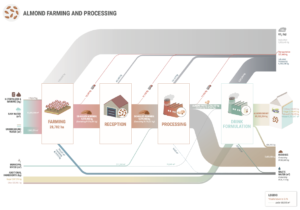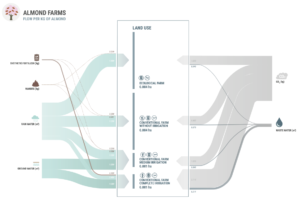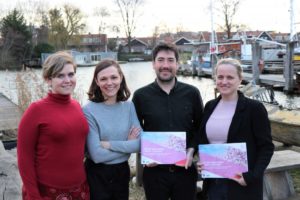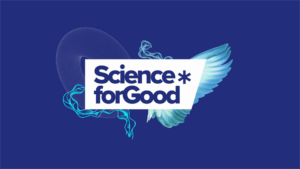What lines can we not afford to cross when it comes to our impact on the planet? As the world races to achieve the UN’s 17 Sustainable Development Goals (SDGs) by 2030, it is vital that the pursuit of sustainable development is undertaken within the absolute limits of what the earth can support.
For answers, many are turning to science-based targets, which are already being employed in the effort to reduce carbon emissions. A range of collaborators including the UN Global Compact are behind the Science Based Targets initiative (SBTi), which has introduced quantifiable targets based on sound science. It has been adopted by 169 major corporations in order to tackle climate change. Lise Kingo, CEO and Executive Director of the UN Global Compact has linked science-based targets to the realization of SDG 13 (Combatting Climate Change).
However, carbon emissions are just one of the many ways in which humans impact the environment. Genuine sustainable development thereby needs to avoid endangering other crucial planetary life support systems, such as biodiversity, soil nutrients, and freshwater. Where the SDGs can provide a vision of a world in which both the human and natural ecosystems thrive, science-based targets can quantify what this world looks like in practice.
Last year, Future Earth Executive Director Amy Luers described the development of broader science-based targets as the “missing link” in achieving the SDGs, while Greenbiz Chairman and Executive Editor Joel Makower facilitated a workshop on the best ways to develop science-based targets for other SDGs at the World Economic Forum’s Sustainable Development Impact Summit. The Science-Based Targets Network has formed to develop a framework and goals for a range of environmental challenges.
A range of initiatives are underway to advance science-based targets in other areas, including a project commissioned by WWF NL and plant-based food and drink producer Alpro to develop methodologies for setting science-based targets for biodiversity, water, land use and soil nutrients via a pilot project with Alpro’s almond and soy supply chains. A consortium of research institutes coordinated by sustainability experts, Metabolic worked with WWF NL and Alpro on the project.


Metabolic sustainability consultant Brian Shaw said that the project could help address the synergies and trade-offs between SDG 2 (Zero Hunger), which will require a rise in food production, and SDG 15 (Life on Land), which aims to protect natural ecosystems. “Using science-based targets, we can understand what a landscape needs to be able to function as an ecosystem, which gives a clear indication of the space we have to farm and produce the material we need,” he said. “Science-based targets provide a pathway to optimise SDGs in a limited planetary space.”

By closely examining a business’s impact in the context of the nine planetary boundaries the world cannot afford to cross, the path to sustainable development becomes clearer. One key outtake from the study included how Alpro’s almond farms could capitalize on their location near Mediterranean forests, woodlands, and scrub ecosystem types that are under threat globally by introducing measures on its farms to create corridors of biodiversity that increase connectivity with surrounding natural habitats. Other findings include how organic farms that perform well on water and nutrient depletion could improve their footprint on land by increasing irrigation or alternative forms of fertiliser use.
Editor’s Picks – Related Articles:

“Science for Good: A New Breed of Entrepreneurs with Science-Based Solutions for a Positive Impact”

“An Enabler to SDGs’ Attainment: Linking Science with Human Rights“
By developing science-based targets that entreprises can apply to their business models, we can more clearly define what work needs to be done in order to achieve the SDGs. We can realize SDG 1 (Ending Poverty) and 8 (Decent Work and Economic Growth) without threatening the objectives of SDG 13 (Climate Action), SDG 15 (Life on Land), and SDG 6 (Clean Water and Sanitation), which make up the planetary life support systems necessary for our survival.










